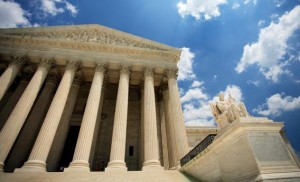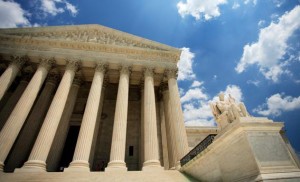US Justice: A Rotting Tree of Poisonous Fruit?
Saturday, the NYT reported that other agencies within government struggle to get NSA to share its intelligence with them.
Agencies working to curb drug trafficking, cyberattacks, money laundering, counterfeiting and even copyright infringement complain that their attempts to exploit the security agency’s vast resources have often been turned down because their own investigations are not considered a high enough priority, current and former government officials say.
Of the 1,410 words in the article, 313 words are explicitly attributed to Tim Edgar, who used to work for ACLU but starting in 2006 worked first in the Office of Director of National Intelligence and then in the White House. Another 27 are attributed to “a former senior White House intelligence official,” the same description used to introduce Edgar in the article.
The article ends with Edgar expressing relief that NSA succeeded in withholding material (earlier he made a distinction between sharing raw data and intelligence reports) from agencies executing key foreign policy initiatives in the age of cyberwar and Transnational Criminal Organizations, and in so doing avoid a “nightmare scenario.”
As furious as the public criticism of the security agency’s programs has been in the two months since Mr. Snowden’s disclosures, “it could have been much, much worse, if we had let these other agencies loose and we had real abuses,” Mr. Edgar said. “That was the nightmare scenario we were worried about, and that hasn’t happened.”
Today, San Francisco Chronicle reminds that NSA does hand over evidence of serious criminal activities if it finds it while conducting foreign intelligence surveillance, and prosecutors often hide the source of that original intelligence.
Current and former federal officials say the NSA limits non-terrorism referrals to serious criminal activity inadvertently detected during domestic and foreign surveillance. The NSA referrals apparently have included cases of suspected human trafficking, sexual abuse and overseas bribery by U.S.-based corporations or foreign corporate rivals that violate the Foreign Corrupt Practices Act.
[snip]
“If the intelligence agency uncovers evidence of any crime ranging from sexual abuse to FCPA, they tend to turn that information over to the Department of Justice,” Litt told an audience at the Brookings Institution recently. “But the Department of Justice cannot task the intelligence community to do that.”
[snip]
“The problem you have is that in many, if not most cases, the NSA doesn’t tell DOJ prosecutors where or how they got the information, and won’t respond to any discovery requests,” said Haddon, the defense attorney. “It’s a rare day when you get to find out what the genesis of the ultimate investigation is.”
The former Justice Department official agreed: “A defense lawyer can try to follow the bouncing ball to see where the tip came from — but a prosecutor is not going to acknowledge that it came from intelligence.”
And (as bmaz already noted) Reuters reminds that the DEA has long had its own electronic surveillance capability, and it often hides the source of intelligence as well.
Although these cases rarely involve national security issues, documents reviewed by Reuters show that law enforcement agents have been directed to conceal how such investigations truly begin – not only from defense lawyers but also sometimes from prosecutors and judges.
The undated documents show that federal agents are trained to “recreate” the investigative trail to effectively cover up where the information originated, a practice that some experts say violates a defendant’s Constitutional right to a fair trial. If defendants don’t know how an investigation began, they cannot know to ask to review potential sources of exculpatory evidence – information that could reveal entrapment, mistakes or biased witnesses.
As bmaz also noted, none of this was very secret or new. The FISA sharing is clearly permitted by the minimization procedures. Litigation on it 11 years ago suggested it may be even more abusive than laid out under the law. And bmaz has personally been bitching about the DEA stuff as long as I’ve known him.
These articles suggesting there may be more sharing than the NYT made out on Saturday, then, are primarily reminders that when the fruits of this intelligence get shared, the source of the intelligence often remains hidden from those it is used against.
Which brings me to this WSJ op-ed Edgar published last week. Read more →





